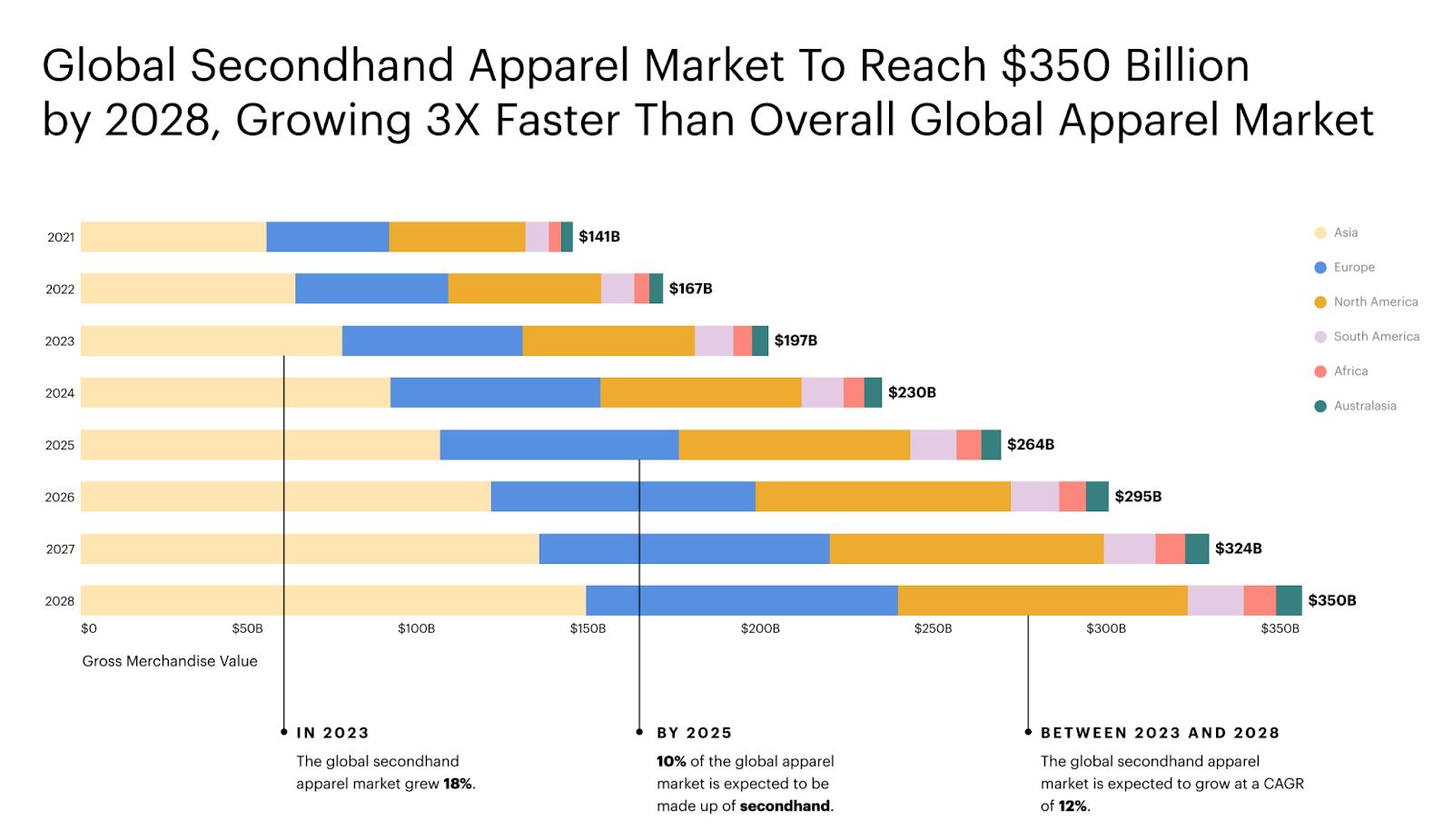I have witnessed countless shifts in consumer behavior throughout my career in the retail industry, but lately I have been particularly intrigued by the rising trend of resale. Now, reselling products is nothing new – thrift stores and yard sales have been around forever. What’s different is the growing awareness of sustainability as well as economic practicality among consumers – particularly Gen Z and Millennials – combined with new technology that can get used products in front of a bigger audience more efficiently than ever before.

This movement was projected to reach a staggering $64 billion by 2024 according to recent reports. For retailers, the resale trend not only offers new business opportunities but also aligns with the ever-increasing importance of corporate environmental stewardship. Let’s delve into some key aspects of this trend, including the handling of returns, the reuse of return packaging, selling used products, and the importance of better recycling options and execution of returns.
Better Execution of Returns
Returns have always been a challenging aspect of retail operations. Often, returned items are either disposed of or sold at a significant discount, resulting in financial losses and environmental waste. However, by integrating returned products into the growing resale market, value can be recovered from these items while reducing waste.
Doing so requires increased labor for thorough inspection, refurbishment, and repackaging of returned goods in order to make them suitable for resale. However, advanced tracking systems and data analytics can help streamline the process, ensuring that returns are handled swiftly and efficiently. There are also new 3rd party providers that offer turnkey resale platforms that retailers can integrate directly on their e-commerce sites. As an investor in XRC Ventures, I’ve had exposure to Recurate, a growing startup in their portfolio, that provides this service for top brands like Michael Kors, Steve Madden, and Frye.
It’s great to see the innovation and investment happening in this space. By turning returns into opportunities for resale, waste is minimized while maximizing value – for both shoppers and retailers.
Selling Used Products
From clothing and electronics to furniture and books, the market for pre-owned items is booming. More and more traditional retailers are offering a curated selection of high-quality used products alongside their new merchandise, both online and in-store. Offering secondhand options may seem that it would cannibalize sales of new, higher priced items, but instead, it’s often an opportunity to reach a segment of the population that may not have been able to afford the brand new item, especially higher end apparel, electronics, or outdoor gear.
REI’s Re/Supply is a great example of a successful resale program. One of the benefits of their membership program is that they will accept returns of used gear within a year of purchase. They assess the quality and wear, and price for resale. The Re/Supply section is often a destination for shoppers in their store; it makes big-ticket items more accessible for more shoppers and keeps them within the store’s ecosystem, all while supporting REI’s ethos of environmental stewardship.
Reusing Return Packaging
One of the simple yet effective practices gaining traction is the reuse of return bags. Instead of discarding these bags, many retailers are encouraging customers to return products in the original packaging. Amazon, for one, is now using shipping bags that can be turned inside out and used as return packaging if needed. Returnity, another startup in XRC’s portfolio that is seeing early success in this endeavor, replaces single-use shipping and delivery packaging by designing, manufacturing, and implementing reusable packaging and circular logistics systems. As more and more retailers adopt these practices, they are not only reducing the need for new packaging materials, cutting down on waste and costs, but making the returns process even more seamless and sustainable for their customers.
Better Recycling Options
As part of the commitment to sustainability, many retailers are also enhancing their recycling options. Encouraging customers to return not only products but also packaging and other recyclable materials once again supports an environmentally conscious brand message. By partnering with specialized recycling firms, retailers can ensure that these materials are processed responsibly and efficiently. In-store recycling programs have the added benefit of driving traffic, incentivizing customers to replace or upgrade the item during their visit.
Embracing a Sustainable Future
The rising resale trend represents a significant shift in the retail industry, offering both economic and environmental benefits while better satisfying customers. By rethinking how we handle returns, reuse packaging, sell used products, and improve recycling options, we can create a more efficient and eco-friendly retail ecosystem.
The future of retail is not just about selling new products but also about giving new life to pre-owned ones. This reselling journey requires innovation, collaboration, and a commitment to sustainability. By aligning business practices with the principles of the resale trend, retailers can meet the evolving needs of customers while making a positive impact on the planet.





